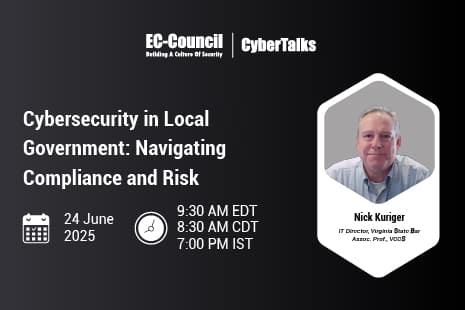As a kid, you may have played a game called “capture the flag,” where opposing teams try to sneak into each other’s territory and retrieve a colored flag in order to win. Capture the flag (CTF) exercise in cyber security operates along similar lines. Essentially, it is a cyber security challenge that tests participants’ ability to find security vulnerabilities in a test IT environment. So how do cyber capture the flag games work, and why are they such an effective way of training beginners in IT security?
What Is Capture the Flag (CTF)?
In cyber security, capture the flag (CTF) is a popular competition and training exercise that attempts to thoroughly evaluate participants’ skills and knowledge in various subdomains. The goal of each CTF challenge is to find a hidden file or piece of information (the “flag”) somewhere in the target environment.
CTF has been gaining in popularity in recent years. According to a 2021 study, the number of CTF events worldwide more than doubled from roughly 80 in 2015 to over 200 in 2020 (ENISA, 2021). Although most competitions occur online, some events are also held in person worldwide.
What Are the Types of CTF Challenges?
There are two main types of CTF security competitions: jeopardy and attack-defense. Jeopardy Capture the Flag rules are simple: competitors must solve a series of IT security challenges, often arranged into different skill areas. These challenges may cover topics such as web application security, reverse engineering, digital forensics, cryptography, and steganography. The other main format of CTF is called “attack-defense.” Each participant or team is given their own virtual machine or network to defend; however, these systems each have their own vulnerabilities that other teams can exploit. Participants must find and take advantage of other teams’ vulnerabilities while defending their own system by detecting and patching its weaknesses.
Why Is Capture the Flag (CTF) Crucial in Cyber Security?
Some of the reasons why CTF cyber security exercises are important include:
- Hands-on skill development: CTF is one of the best ways for cyber security professionals to hone their technical skills, applying their theoretical knowledge to solve real-world challenges.
- Risk-free environment: CTF offers real-world experience in cyber security tools and techniques while taking place in a controlled, risk-free environment where participants can experiment without devastating consequences.
- Collaboration and teamwork: CTF usually requires participants to join forces as a team, helping individuals learn to work together to tackle complex, multistep challenges.
- Networking and recruitment: CTF is an ideal way for professionals to connect and learn from each other and showcase their abilities to potential employers.
How Does Learning Capture the Flag Exercise Help Those Starting a Career in Cyber Security?
Capture the flag cyber security exercises are especially helpful for beginners in cyber security, who can partner up with more experienced professionals on a team, getting their feet wet while learning through observation and acquiring valuable skills. Through their participation in CTF exercises, cyber security beginners can be exposed to a wide range of technical concepts and tools.
Jeopardy-style CTF forces participants to apply skills from many cyber security domains, from web security to cryptography, and become more well-rounded IT professionals. Competitors need to think critically to find vulnerabilities, evaluate cyber attack and defense strategies, and develop creative solutions to problems.
Many employers value CTF experience when looking to hire for cyber security roles. Companies often sponsor CTF events, hoping to network with especially promising participants. Cyber security beginners can receive mentorship, guidance, and potential job opportunities at the CTF event.
Lastly, CTF is a fun and engaging way to promote cyber security as a viable career path. The enthusiasm beginners acquire for cyber security at CTF events can carry over into a real-world role as an ethical hacker, penetration tester, or security analyst.
How Does the Certified Ethical Hacker (C|EH) Course Help You
CTF (capture the flag) exercises are invaluable for cyber security beginners to gain practical experience in a safe, controlled environment. EC-Council’s Certified Ethical Hacker (C|EH) program allows cyber security candidates to participate in CTF exercises to gain practical experience in cyber security. Candidates then get to prove their mettle through a series of Global Ethical Hacking Competitions designed to keep their skills up to date years after the certification. With C|EH training, students get access to 12 monthly CTF-style global competitions, allowing them to compete with their peers and measure where their skills stand. These CTF competitions are designed based on the latest attack incidents, zero days, techniques, and strategies, enabling students to stay on trend as a continuous learning platform.
EC-Council’s flagship program, the C|EH, is the world’s leading ethical hacking credential that equips cybersecurity professionals with the knowledge, skills, and abilities to protect organizations against cyber attacks. Certified Ethical Hackers are trained to follow a rigorous 5-phase approach (Reconnaissance, Scanning, Gaining Access, Maintaining Access, Covering Tracks) in lawfully breaking into an organization by identifying the weakest links, vulnerabilities, and misconfigurations. The program’s unique learn-certify-engage-compete learning framework covers every aspect, from training and certification, and hones learners’ skills by exposing them to ethical hacking engagements in EC-Council’s live cyber range environment. One of the most sought-after certifications globally, the C|EH prepares candidates for various lucrative cybersecurity roles by top companies.
References
ENISA. (2021, May). CTF Events: Contemporary Practices and State-of-the-Art in Capture-the-Flag Competitions. https://www.enisa.europa.eu/publications/ctf-events/@@download/fullReport
Singh, A. (2020, May 18). GitHub – apsdehal/awesome-ctf: A curated list of CTF frameworks, libraries, resources, and softwares. https://github.com/apsdehal/awesome-ctf
About the Author
David Tidmarsh is a programmer and writer. He’s worked as a software developer at MIT, has a B.A. in history from Yale, and is currently a graduate student in computer science at UT Austin.











